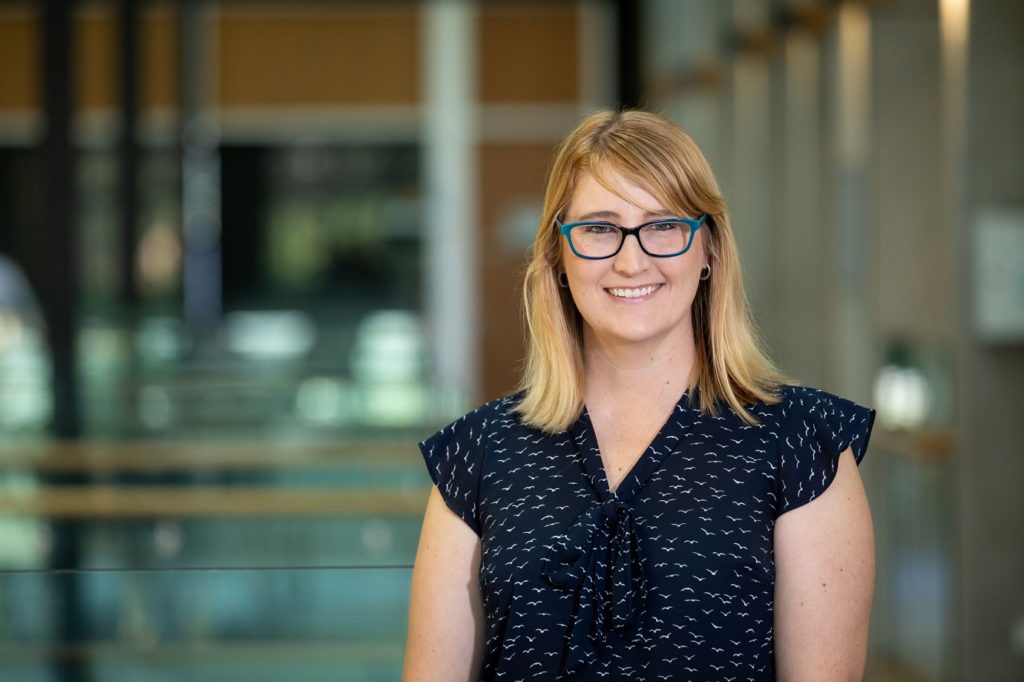When Dr Jessica Allen was an undergraduate in an engineering degree at university, she never imagined she’d have a career in academia.
As she tells Kate Mills in the latest episode of The Leadership Lessons, a Women’s Agenda podcast supported by Salesforce, she never had a female lecturer, so it was hard to see herself in that kind of role.
“I was one of very few women and it took me a while to realise I never actually considered a career in academia,” Dr Allen said in the podcast.
“I think partly because I didn’t have any female lecturers. I didn’t see any female leaders in engineering, so I never thought I would actually end up as a lecturer.”
Years later, Dr Allen, who has a multidisciplinary background as an electrochemist and engineer, is now a lecturer in the school of engineering at The University of Newcastle. She’s a recognised expert in carbon capture and utilisation, and her research is currently focused on a carbon negative manufacturing process, driven by renewables.
As we face the realities of transitioning our economy away from fossil fuels in the face of climate change, Dr Allen’s work is an essential element of the technological advances we will come to rely on.
But the challenges Dr Allen has faced along the way in her career are common to many women in STEM. In the podcast, she explains that having children nearly threw her career off balance; to the point where she nearly left academia for good.
“I almost left academia after I had my children, it was definitely hard to get back in. There was a major loss of momentum and what keeps you going in academia is keeping on publishing, keeping getting grants, keeping your PhD students doing their research,” she explained. “If you have to take a large break from that, it can be hard to keep that momentum going.”
“We’ve seen an increase in women doing science and an increase in women doing engineering as undergraduates. But it’s not just about originally attracting them to science but retaining them once they get there.
“We’ve got a massive pipeline issue in academia and industry, where women are there to start with and then we lose them somewhere along the way.”
And while there is a real problem retaining women in all areas of STEM, in engineering specifically, the situation is often worse.
“In engineering, the problem is we actually start off with less female undergraduates, and then it drops even more at the end,” Dr Allen said. “So, you start off low and you end low.”
Dr Allen explains that in academia, the toughest transition most researchers make is going from being a postdoctoral researcher to a fully-fledged academic. It’s a transition that’s often trickier for women, who are more likely to have additional unpaid caring responsibilities.
“That is the most difficult transition in any academic career, because you go from being part of a research group to leading a research group,” she said.
“It’s quite difficult to make that step for any researcher, but I think for women in particular it can be difficult because of these conflicting carer responsibilities, but also because you may not be seen as a leader.”
It’s one of the reasons Dr Allen is so passionate about being a science communicator, as well as being part of the Superstars of STEM program, an initiative from Science and Technology Australia designed to smash society’s gender assumptions about scientists and increase the visibility of women in STEM.
In the podcast, Dr Allen also shares how her research in future-critical technologies makes her optimistic for the future.
“I have been a little bit cynical in the past, but I think in the last two or three years I’ve seen real momentum gathering,” she said.
“I think part of it has been around the tipping point of renewable electricity generation like solar photovoltaics and wind generation are cheaper to build now than coal fired power.
“That economic driver has really pushed that technology to the forefront and made it a real, viable, and attractive option.
“Australia will start to produce and use more electricity because we have these renewable resources and we have the technology to capture it as electricity. What we want to do is use that electricity to make products that we can then export.”
The Leadership Lessons podcast series, hosted by Kate Mills, is a set of interviews with brilliant female leaders across industries, sharing their perspective on the critical decade ahead.
The Leadership Lessons is supported by Salesforce.


